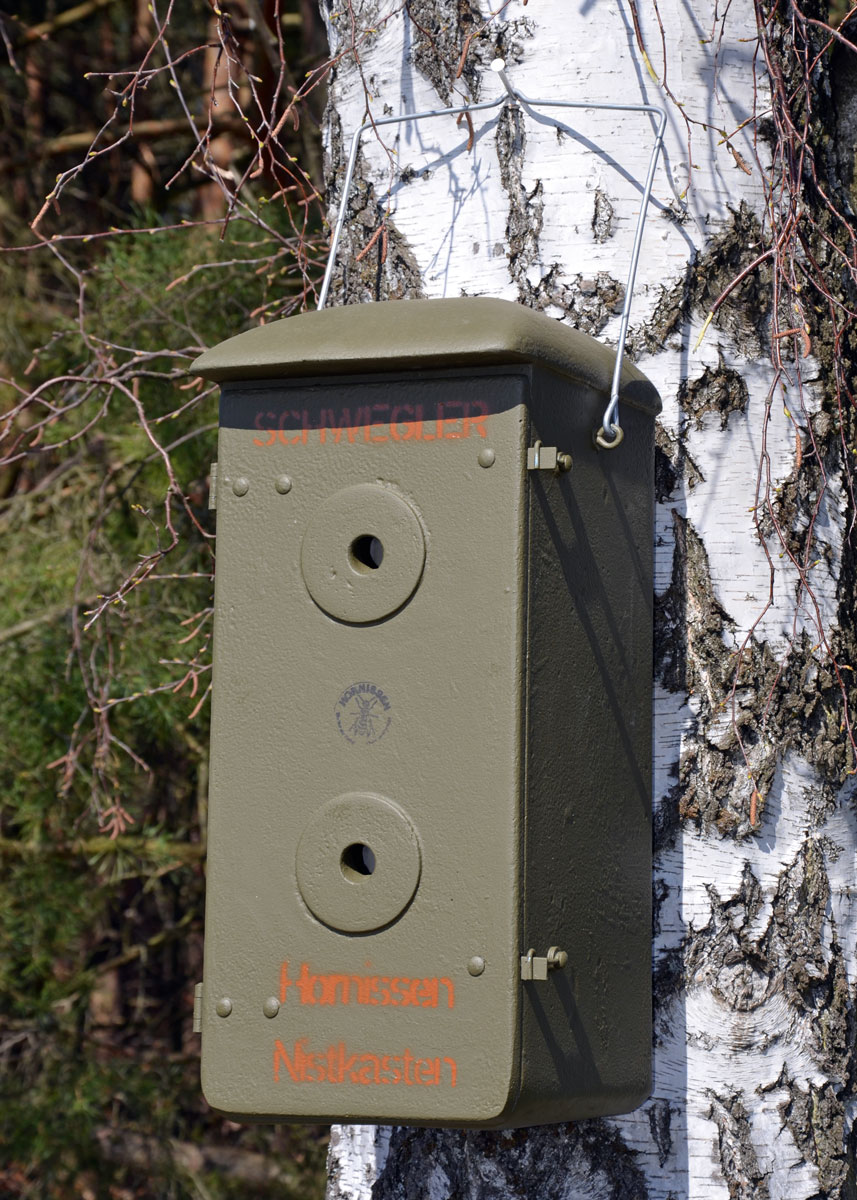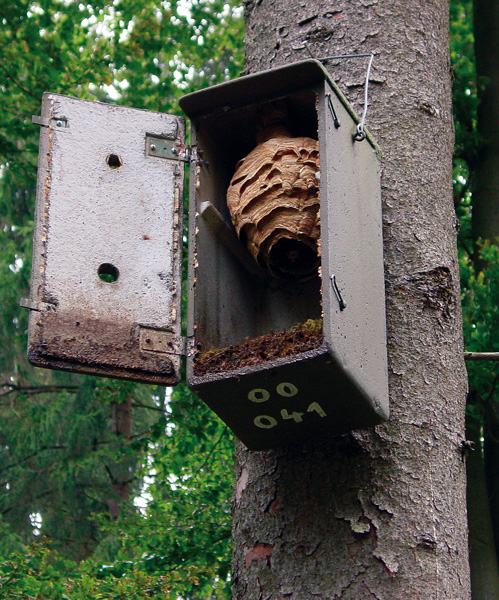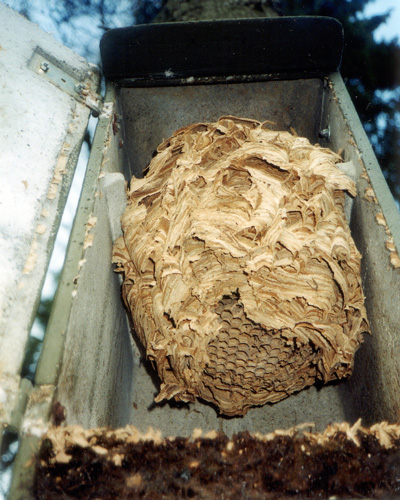Hornet Box
€ 178.38
| Article name | Hornet Box |
|---|---|
| Product number: | 00360/7 |
| Delivery time | Delivery in 9 months |
The Hornet Nest Box made of our tried and tested SCHWEGLER wood-concrete has numerous advantages
compared to Hornet Boxes made of wood:
- improved interior shape, which the animals prefer; more readily acceptable.
- due to its insensitivity to weather, the durability is far longer than wood.
- very favourable microclimate thanks to the tried and tested and durable SCHWEGLER wood-concrete material. Wood-concrete does not warp with time, so that the microclimate in the box is not disrupted by draughts. Also, bright light cannot enter the inside of the box.
- very suitable for independent settlement and for relocation campaigns.
Material:
SCHWEGLER wood-concrete. Hanger: steel, galvanised.
Size:
W 28 x H 60 x D 25 cm
Siting:
The Hornet Box can be installed at the edge of forest clearings, forest edges, in windfall areas, clear-cut areas, park landscapes, etc., especially attached to deciduous trees. Where possible, the hanging site should not be particularly conspicuous, to avoid provoking possible disruptions.
The direct air space, entry and exit area at the level of the Hornet Box must be free from branches. If several Nest Boxes are installed, the distance between them must be at least 100 metres, as otherwise proper territorial fights take place between the different Hornet colonies.
Height above ground:
At least 4 m.
Cleaning:
From April of the following year. Leave the old nest undisturbed
throughout the winter, as "useful animals" such as Lacewings, Hornet Beetles,
etc. like to spend the winter in it.
Occupancy:
From May until late summer.
Precise documents on use are supplied with the Hornet Box.
Includes:
Nest box, galvanised hanger and aluminium nail.
Tip:
Optionally, the Hornet Box can be attached using
two Hanging Blocks.
Weight:
approx. 14.5 kg
In Germany and in some parts of Austria, Hornets enjoy special protection. It has now been proven that Hornets only attack for absolute self-defence, i.e. if they are pursued directly. Their sting is no more dangerous than that of a Bee. Only two species of Hornets live in Europe. Together with the small species of Wasps, these belong to the family of True Hornets (Vespinae) or Eusocial Wasps (Vespidae). These in turn, like for example the Bee family, belong to the large group (order) of Hymenoptera (meaning "membrane wing"). The Hornets feed off of nectar, fruit and plant sap, but they feed live captured insects and larvae (animal protein) to their offspring. To do this they also catch large able-bodied insects and therefore fulfil important regulating tasks in the species structure of nature. If this relational structure is disrupted, the probability of mass reproduction of insect species that are undesirable for humans, such as the Bark Beetle, increases. Did you know that a large Hornet colony feeds up to half a kilo of insects – Horseflies, Daddy Longlegs, Caterpillars, Wasps, etc. – to its young daily?
| Animal species: | Hornet |
|---|---|
| Colour: | olive green |





